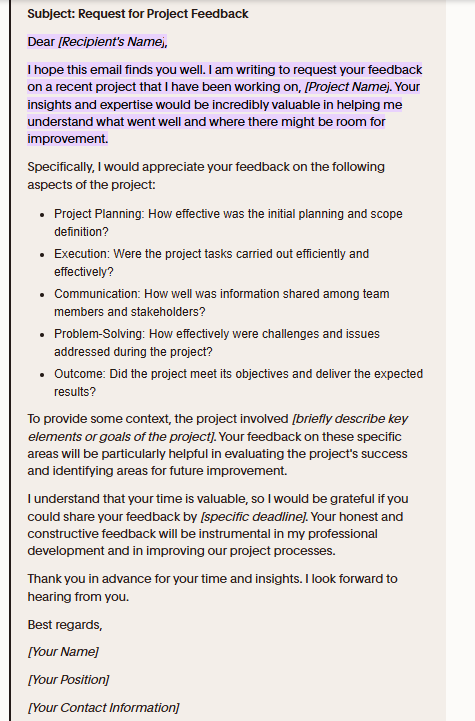
Why Asking for Help Is Essential for Your Writing Career

Introduction
Many people believe that great writers work alone. They think writing success comes only from talent and discipline. But this is not true. Even top writers ask for help.
Seeking help does not mean you are weak. It is a smart way to grow. It helps you improve your skills and produce better work. It also creates new opportunities for you.
In this article, we’ll explore:
- The emotional and mental blocks that stop writers from seeking help.
- How mentorship, writing communities, and feedback accelerate growth.
- Online resources and communities where you can get assistance
- The professional and ethical ways to seek guidance from others
If you’ve ever hesitated to ask for help, this guide will give you the tools and confidence to reach out without fear.

1. Emotional Barriers That Stop Writers from Asking for Help (and How to Overcome Them)
Many writers struggle to ask for help because of self-doubt, fear of rejection, and the belief that writing is a solo journey. If you’ve ever hesitated to seek feedback, mentorship, or collaboration, you’re not alone. Let’s break down the emotional roadblocks stopping writers from reaching out and how to overcome them.
Fear of Judgment: "Will People Think I'm a Bad Writer?"
Many writers fear that asking for help will make them look inexperienced or untalented. They worry:
- “What if people think I’m not a good writer?”
- "Will an editor tear my work apart?”
- “What if I embarrass myself by asking a ‘dumb’ question?"
- What if people laugh at me?"
How to overcome the fear of criticism as a writer
- Shift your mindset. Seeking feedback isn’t about proving your flaws—it’s about improving your craft.
- Start small. Ask for help from a trusted friend or writing group before reaching out to industry professionals.
- See criticism as a tool, not an attack. Every writer, from beginner to professional, refines their work through constructive feedback.
For more information, you can Google search "how to take constructive criticism as a writer" and read expert insights on handling feedback professionally.
The "Lone Writer" Syndrome: Do Writers Need Help?
Some writers believe they must struggle alone to be taken seriously. They romanticize the image of an author working in solitude, but in reality, many successful writers thrive on collaboration.
Famous authors like J.R.R. Tolkien and C.S. Lewis had writing groups where they exchanged feedback. Even today, top authors work with writing coaches, editors, and beta readers.
How to overcome isolation in writing
- Join a writing community (Facebook groups, Substack, Twitter Spaces, or local meetups).
- Get a mentor. A writing mentor can provide insights, critique, and encouragement.
- Collaborate with other writers. Co-writing projects, critique exchanges, or accountability partnerships keep you motivated.

Fear of Rejection: What If No One Helps Me?
Asking for help means being vulnerable, and that’s scary. Many writers avoid reaching out because they fear rejection. Common thoughts include:
- “What if an editor ignores my email?”
- “What if someone criticizes my writing harshly?”
- “What if my request for feedback is met with silence?”
But rejection is a normal part of writing. Every successful writer has faced rejection at some point. The key is knowing how to handle it.
How to overcome rejection as a writer
- Ask the right people. Don’t randomly reach out—find those who are known for offering guidance.
- Be professional and polite. A well-structured request increases your chances of getting a positive response.
- Keep trying. If one person says no, find another. Many writers are happy to help if you approach them the right way.
Key Takeaway: The biggest barrier to improving your writing is often your mindset. The sooner you let go of fear, the sooner you can grow as a writer.
2. Role of Writing Workshops and Classes
Many writers try to improve on their own, but structured writing classes provide expert guidance and networking opportunities.
Why Should You Take Writing Classes?
Some writers are looking to understand the value of writing workshops and whether they should invest in one.
Benefits of Writing Classes and Workshops
1. Expert Guidance: Learn from professional writers and experienced editors.
2. Structured Feedback: Improve your writing with clear, actionable critiques.
3. Networking Opportunities: Connect with fellow writers, mentors, and industry professionals.
Where to Find Writing Classes
- Online Writing Courses – (Get Paid To Write, Udemy, Coursera, MasterClass, Domestika)
- Local Writing Groups – (Meetup, Facebook Groups, Community Centers)
- University Writing Workshops – (Check university extension programs)

3. Best Online Resources for Writers
Writers, new ones especially, are always searching for specific online platforms where they can improve their skills.
Top Online Writing Communities and Feedback Platforms
Writing Communities
- Reddit Writing Groups – Subreddits like r/writing and r/destructivewriters for feedback.
- Scribophile – A critique-based community where writers exchange feedback.
- Critique Circle – A structured platform for peer reviews
- Ink and income- A structured platform for peer reviews A whatsapp group of writers sharing tools and resources.
Forums and Discussion Boards
- Absolute Write – Covers publishing, freelance writing, and networking.
- Writer’s Digest Community – Discusses writing techniques, publishing, and marketing.
Social Media Writing Groups
- Facebook Groups – “The Write Life Community,” “Freelance Writers Connect”
- Twitter Hashtags – #WritingCommunity, #WritersLift #freelancewriters

How to Find Writing Mentors and Support Networks
✔ Attend Writing Conferences – Many professionals are open to mentoring aspiring writers.
✔ Engage Online – Comment on posts, ask insightful questions, and build relationships.
✔ Join Professional Organizations – Editorial Freelancers Association, The Author’s Guild.
Finding Writing Accountability Partners
Writing buddies keep you motivated and help you improve. Here’s how to find one:
✔ Join NaNoWriMo Writing Groups
✔ Participate in Twitter Challenges (#1000WordsADay, #5amWritersClub, #ExtrastivWritingChallenge, etc.)
✔ Start a Writing Group with friends

How to Ask for Feedback Without Annoying Others
✔ Be Specific – Instead of “Can you check my work?” ask, “Can you give feedback on pacing and dialogue?”
✔ Respect Their Time – If they say no, don’t push. If they say yes, don’t overwhelm them.
✔ Express Gratitude – A simple thank you goes a long way.
✔ Focus on Clarity – “Does my writing flow naturally, or are there any confusing parts?”
✔ Ask About Engagement – “Do you find the opening engaging, or should I make it stronger?”
✔ Check for Consistency – “Does my character’s personality stay consistent throughout the story?”
✔ Test the Emotional Impact – “Did this scene evoke the emotions I was aiming for?”
✔ Refine Word Choice – “Are there any sentences that feel awkward or could be more concise?”
✔ Improve Structure – “Does the article/story have a logical progression, or does it feel disjointed?”
The key is to ask targeted questions so the feedback you receive is useful and actionable.
You can ask more questions based on what you need, the above are just examples.

Conclusion: Writing Is a Collaborative Journey
Writing is not a solitary journey. The most successful writers rely on feedback, mentorship, and continuous learning.
By joining communities, attending writing classes, and embracing collaboration, you can accelerate your growth and become a better writer.
Frequently Asked Questions (FAQs): Writers asking for help
1. What’s the best way to find a writing mentor?
Join writing groups, attend conferences, and engage with professional writers online.
2. How can I overcome my fear of feedback?
Start with small writing groups or beta readers. Remember, feedback isn’t personal—it’s about improving your work.
3. Where can I find free writing help?
Reddit, Facebook writing groups, and critique platforms like Scribophile.
4. How do I ask a professional writer for help?
Be concise, respectful, and specific. Show that you value their time.
5. Why do writers struggle to ask for help?
Many fear judgment, rejection, or feeling like an amateur. However, every great writer seeks feedback to grow.
6. Where can I ask for help as a writer?
Join Facebook writing groups, LinkedIn writing communities, Twitter (X) threads, and local writing workshops.
7. How do I find a writing mentor?
Research experienced writers in your niche, engage with their content, and send a polite, personalized message asking for guidance.
8. Is writing a solo job?
Not always! Even freelance writers collaborate with editors, clients, and fellow writers to create high-quality work.
If you are having isues and problems with generating content ideas as a writer, check these methods
7 Comments Add a Comment?
Angela
This is very insightful, the need to be part of a writing community can't be overstated. Writing is not meant to be a lonely path!
Uchechukwu
Quite a lot of good info for a beginner like me.
Uchechukwu
Quite a lot of good info for a beginner like me.
Wonuola
Great write up
Chibuzo Nwabueze Etozuo
This was really insightful. Thank you for sharing.
Stella Nnaji
A much needed article. Thank you for this insightful article.
Preye Ronald Pimeh
I can relate to the fear of being perceived as incompetent or untalented. It is a fear that often prevents people from seeking help—not just in writing but in many aspects of life. But one way to overcome it is by finding someone you trust who will sympathize with you and offer support without exploiting your vulnerability.